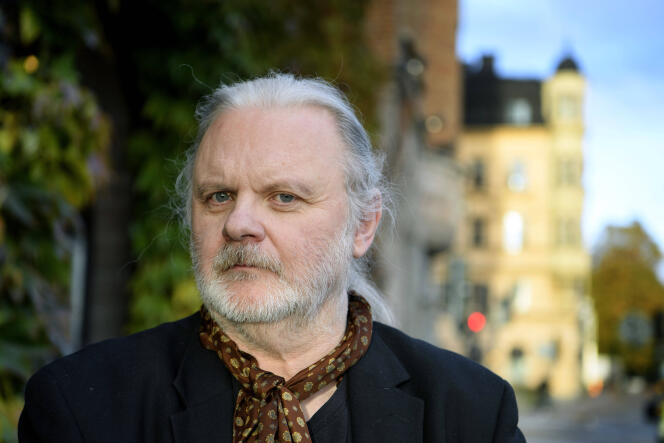


On Thursday, October 5, the Swedish Academy honored Jon Fosse as a "360-degree writer" – a fitting tribute for a playwright, novelist, short story writer, essayist, poet and author of books for young people. In awarding the Nobel Prize for Literature to Jon Fosse – who becomes the fourth Norwegian author to receive the award after Bjornstjerne Bjornson (1903), Knut Pedersen Hamsun (1920) and Sigrid Undset (1928) – the jurors saluted an author who is fascinated by language, and its hypnotic and musical power, but also by everything that escapes it.
Born on September 29, 1959, in Haugesund, on the west coast of Norway, Fosse wrote his first text, Raudt, Svart (Red, Black), at the age of 23. It would be another 10 years, marked by the publication of some fifteen prose works, including Closed Guitar(1985), Boathouse (1989) or Lead and Water (1992) before he would try his hand at the genre that would make him world-famous: theater.
His first play, And We'll Never Be Parted, was staged and published in 1994. Remarkably prolific, he has published one or two plays a year ever since – including Nightsongs (1997), Death Variations (2001), The Dead Dogs (2004) and I Am the Wind (2007) – numbering a total of some 30 theatrical works in 20 years. These plays have been translated into more than 30 languages, performed all over Europe, and staged by some of the greatest directors of our time.
But whatever the genre, it's his use of language that makes Fosse so original. A very simple verbal base and minimalist writing, extremely pared down, serve a plot that is also reduced to its simplest expression. His characters have no names. They are referred to impersonally: "him," "her," "the son," "the father"... Their past doesn't matter. Nor their appearance. They have no faces. As Fosse told Le Monde in 2003: "They are voices. I don't describe characters in the traditional sense. I write about the human."
And he captures the human in all its interactions and contradictions. For, always through the medium of language, Fosse shows just how complex these voices are. "Language means one thing and its opposite and something else again," he asserted, his work highlighting moments of tension, jealousy, anguish and solitude; breaking points, separation, abandonment.
Throughout his work, we find Fosse's favorite themes: time, memory and the return of the dead. Yet the author insists that he "discovers things by writing them down" rather than setting out to write on the same ideas. "When I sit down to write in the morning, I certainly don't want to know where I'm going. I don't want to know what's going to come out. It's a kind of musical improvisation, like in jazz, where the musicians pick up the theme and play it back to each other."
You have 12% of this article left to read. The rest is for subscribers only.
